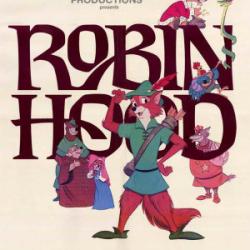In sports, it is common for coaches to tell their athletes to dream of their sport day and night. Indeed, there is a Jewish idea that relates to making use of the mind in order to breed a desired result, only with something a little more meaningful than basketball.
Toward the end of Abraham's life, the Bible tells us, "Abraham was old, and he came with days." At first glance, this seems repetitive: If he was old then obviously he had days, and if he had days, is it not clear that he was old?
Bursting Inspiration
You may have noticed that the nature of human beings when they experience something new and inspirational is to jump into action. They were moved and now they get moving. They start making phone calls, assembling their "troops," and strategizing. They are ready to make a difference! They are ready to make a change!
However, it's not long before they hit a block, and things start to slow down. Then another dead-end causes things to move slower. Thoughts of the inspirational blast-off experience just don't seem to arouse those same passionate feelings as they once did. Eventually, they run out of gas. The burst of energy was great, but now that's something of the past. The inspiration has become stale, causing the motivation to dry up. Those ideas, once full of life and zeal, have turned old and rusty.
Abraham, however, was old, yet came with days. He accomplished the feat of keeping his moments of inspiration new and fresh. He was constantly appreciating, re-experiencing, and getting inspired by every day he ever lived. Truly, this is the way a person should strive to live: always remembering every inspirational and motivational moment he has been granted. And just as the Jews of the Bible are told not to forget the awesome sights that their eyes had seen at the giving of the Torah at Mount Sinai, so too we are not to forget our personal Sinaic experiences—those events that have given us a moment of clarity in our own lives.
Picture This
In Jewish thought, everyone is created in a duality. On the one hand, people have an inclination toward good and to rise above; that is thanks to the Godly soul. On the other hand, a person has the opposite inclination, to fulfill his every whim and to take the path of least resistance due to his animal side, the body. The Hebrew word for inclination, yetzer, is closely related to the Hebrew word for painting a picture, tziyur. In a sense, this is what our inclinations—good and evil—are involved in. Both are working around the clock, flashing colorful pictures of what life will be like if only we'd buy their product.
A few years ago, there was an advertisement claiming, "Image is nothing." It would seem today that the opposite holds truer: "Image is everything." As the Talmud warns, "The eye sees; the heart desires; and the parts [of the body] finish [the job]." At the source of every action and effort is a picture of the perceived potential outcome of that act. For example, how does a medical student get through eight grueling years of medical training? There must be some vision or thought he keeps coming back to when he is swamped with work, something that inspires him to continue. It can be the thought of starving children in Africa or the picture of a white coat with his nametag on it. But you can be sure that there is an image that keeps him going. By focusing on the end-point, one is reminded of the meaningfulness of one's goal, thereby making the process of getting there more tolerable and fulfilling.
1/26/2012 5:00:00 AM





